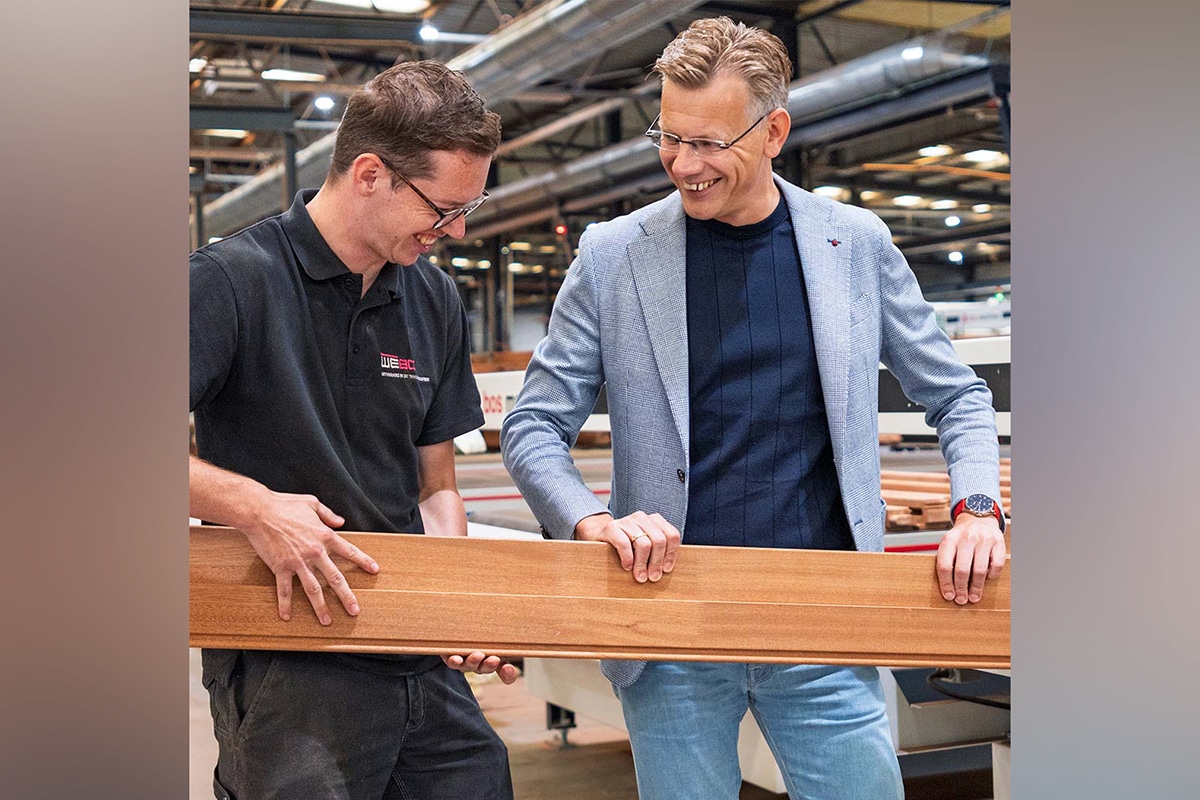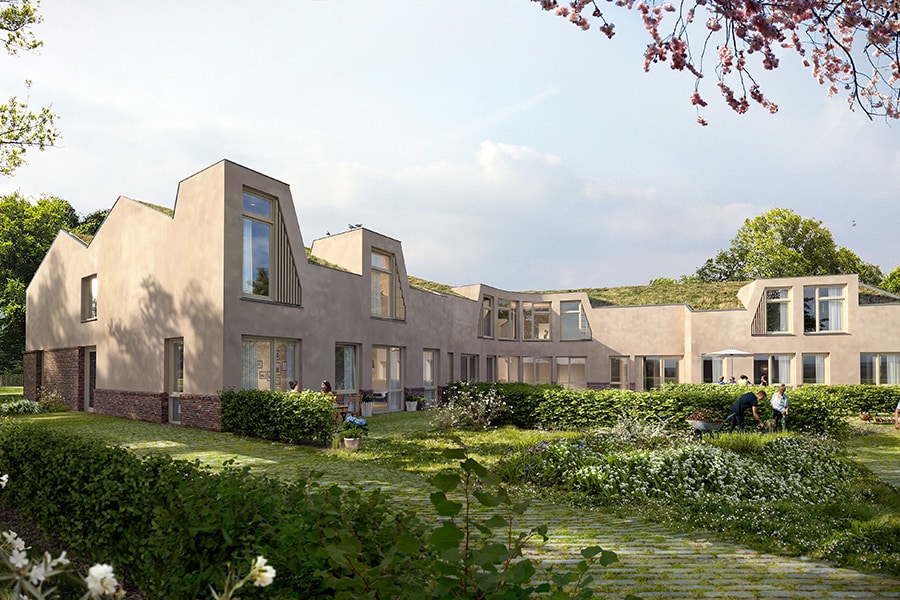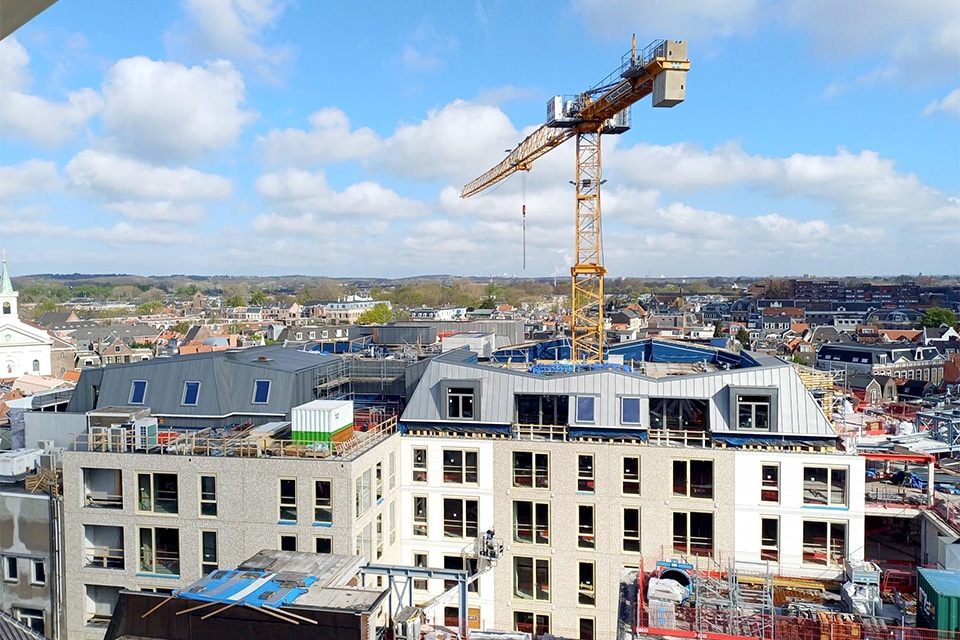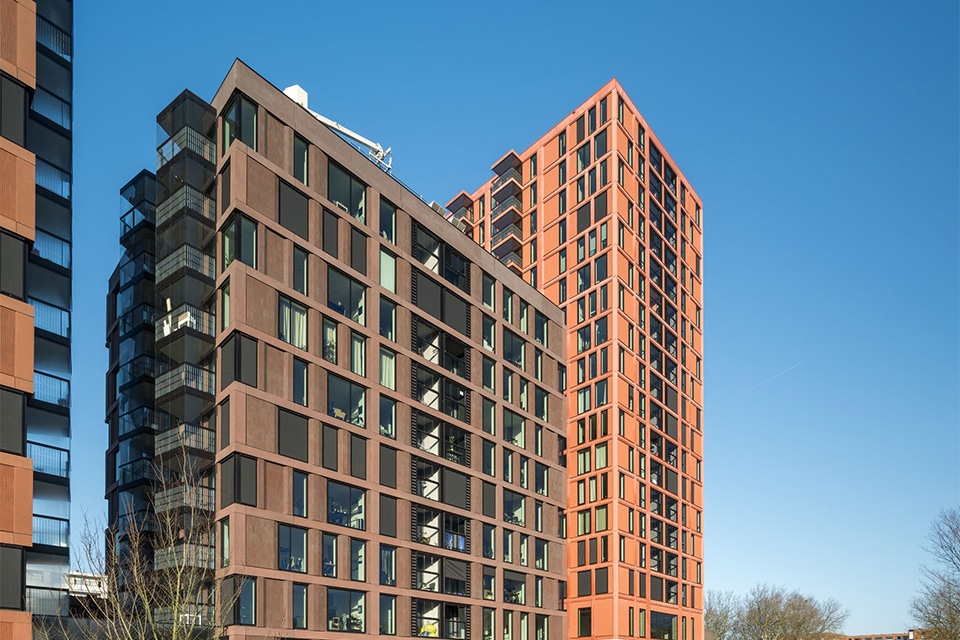
Agile building with sustainable ambition
Dura Vermeer is a family business that has been in existence since 1855, and in 2023 is still an independent Dutch construction company. With a turnover of approximately €1.8 billion and over 3,000 employees, the group is among the top players in the Dutch construction industry. Independence and long-term continuity form the basis for the strategy, said board member Ronald Dielwart.
"We operate in residential construction, non-residential construction, infrastructure and engineering," said Dielwart, member of the Executive Board and president of the Construction and Real Estate Division. "Our core activities include the design, development and realization of construction and infrastructure projects, including management and maintenance, renovation and transformation. That broad base, area development with or without land ownership, construction or renovation/transformation with or without development responsibility, is our strength."
Attractive partner
A necessary force, continues Dielwart. "We face enormous challenges in the construction industry. The demands of stakeholders in terms of sustainability, the scarcity of locations and the need for technical innovation require agility: investing in new techniques, data management, participating in the social domain when it comes to resident participation and bearing risk in design & build." This makes you an attractive partner for clients and ancillary contractors, without specializing in specific components that can be cyclical. Housing construction remains an important core business; driving an area development, such as the new Hefkwartier in Rotterdam, is different from the Deysselbuurt urban renewal project in Amsterdam. Both are Dura Vermeer projects. "We can do both, and everything in between, and also have a broad portfolio in technical non-residential construction."
Net Zero strategy
Construction is becoming increasingly demand-driven. This requires a different approach to the process. The strict separation of design and execution phases is disappearing; technical innovation starts at the front at Dura Vermeer. Dielwart: "Of course, we always work with good partners for the execution. When it comes to the technology behind it, it starts with the development of smart buildings - data-driven control technologies, to give just one example. We have set up a separate technical division for that." Previously, you found this kind of work at consulting firms. "Now we do it ourselves, including with the acquisition of specialist companies. In our Net Zero strategy (halving CO2-emissions 2030 / 90% in 2050; ed.) we strive not only to make our own activities more sustainable, but the entire chain. This of course includes energy and material use. The latter includes CO2-poor concrete, timber construction or precast construction 'all the way.'"
Ready for the future
The level of ambition is high, and it has to be, because normative parties such as the National Property Company want to be climate neutral by 2050, procure sustainably and realize as much circular use of materials as possible. The level of ambition in the field of housing is equally challenging, as reflected in the plans of Housing Minister Hugo de Jonge for the realization of 900,000 new homes by 2030. What can Dura Vermeer do to accelerate implementation? Dielwart: "We are ready to fill in what is expected of builders, such as industrialization and innovation. We are filling in the limited availability of building sites with our broad base. However, things are too slow in the licensing system. There is still much to be gained there."



